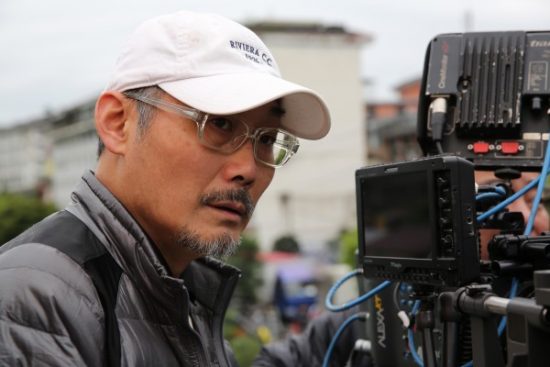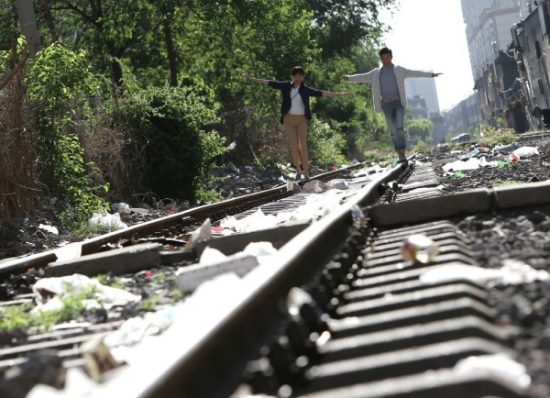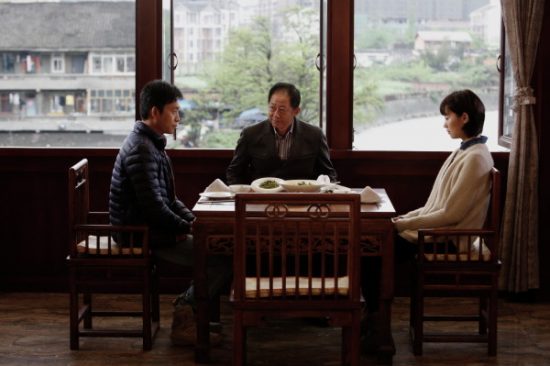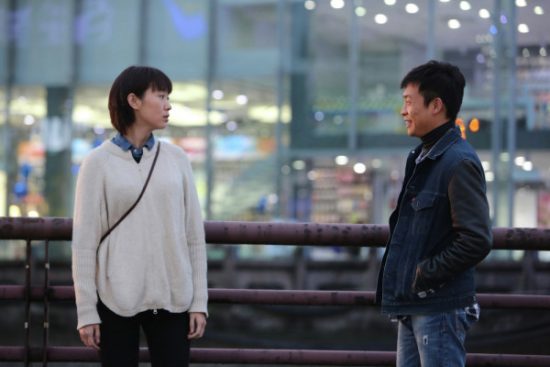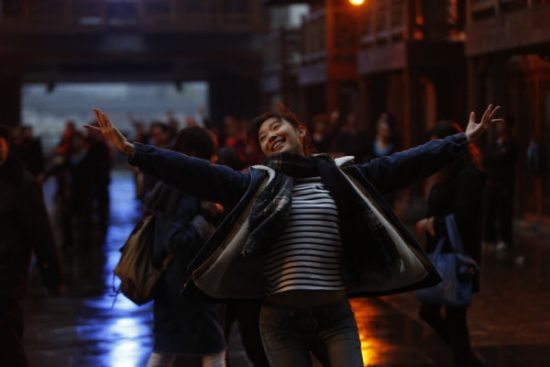Changing Times: He Ping talks about The Promised Land
Aided by an interpreter Trevor Hogg had an opportunity to chat with He Ping about the challenges of making a contemporary film about life in China called The Promised Land…
A new cinematic offering from He Ping is not regular occurrence as the Chinese filmmaker has produced six movies over a period of 28 years. The native of Beijing began his career making documentaries and directing plays before helming epics such as The Swordsman in Double Flag Town and Warriors of Heaven and Earth. “With documentaries things just happen so you have to go with it. My historical films are very theatrical. These two different experiences have absolutely helped me.” The Promised Landwhich was lauded with an Honorary Award as part of inaugural Platform competition at the 40th Toronto International Film Festival marks the first time Ping has dealt with a contemporary setting. “I’ve wanted to do a contemporary film for a long time but hadn’t found anything of interest or value until the past couple of years when I realized how many young people are leaving the small towns for the city and what this meant for the future of the country because this isn’t going to stop any time soon.”
The Promised Land revolves around a ballet dancer returning to her rural home upon the death of her fiancé whom she met while living in Beijing. Principal photography was conducted over a period of 56 days and took place in Beijing as well as in a small town located in Southwest China. “I did not storyboard the opening shot,” reveals He Ping. “We had 50 hours of footage to get through and it came out of the process of editing.” There was also no script for the cast which features Wang Jiajia, Zhang Yi, and Wang Zhiwen. “I gave them direction and the ideas of what they were talking about and said how much time we had.’ We practised. Through rehearsals we would come up with what they were saying and would listen back to figure out what needed to be changed. Then we would go to shoot the actual scene.”
“The idea for the long tracking shot with the dinner was to get everybody in it and also to represent the passage of time because they hadn’t seen each other for such a long time,” explains He Ping. “Everybody had to get their dishes and then sit down all within a period of 10 seconds. That was a big task.” Even more complicated to orchestrate was a six minute tracking shot when Wang Jiajia and Zhang Yi get off a bus and walk through five different city streets. “I had a total of 40 minutes to do that shot five times. Best of all, it had to be at dusk because I needed the light off of the businesses they were walking by as I wasn’t going to light the five streets. It started to rain and we couldn’t seal off those streets. Everybody Wang Jiajia and Zhang Yi walk past were not supposed to look at the camera. The biggest problem was that all of the shopkeepers wanted to come out and check what was going on. We had to station a person at every shop with money ready so that the second the camera came near they started to buy something from the shopkeeper. If anything happened with the actors we would have to do it from the beginning again. We did four great takes, the plan was for five. The Wang Jiajia and Zhang Yi were amazing.”
A courtship scene takes place with Wang Jiajia and Zhang Yi knocking on opposite sides of a wall. “First we filmed the male half, then the female half and then filmed them at the same time,” reveals He Ping. “When Zhang Yi was performing there was nothing to reacting to so he improvised the knocking part. Once I had his part I had Wang Jiajia listen to the recording and react back to what the Zhang Yi had improvised in the first place.” Another cinematic moment involves a wide shot of Wang Jiajia playing a piano and Zhang Yi dancing on a bed with a sheet draped over him. “It was an improvised operation with the camera on top. We didn’t plan too much of it. I told them they were going to be having a great time together. When it came to the music Zhang Yi did not see the notes until she arrived on the set. What I wanted was a natural and unplanned experience for that scene which we got.”
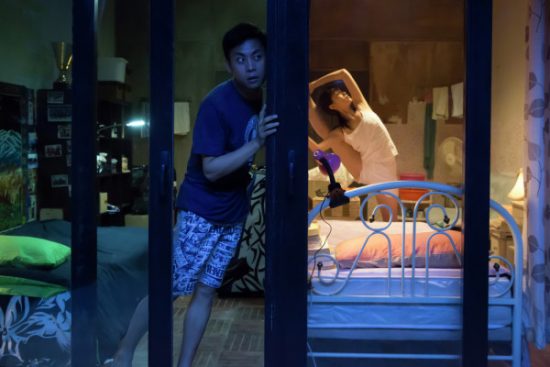
Warm and cool colours are contrasted against each other. “I wanted to contrast Beijing with the small town such as pollution versus clean environment,” remarks He Ping. In Beijing, the idea was these kids who come from the small towns see their lives moving forward as if they are on a stage.” No score was composed for the drama with 23 minutes of music coming from the piano tunes played during the ballet practises. “There are a lot of difficulties filming in China because I would like to shoot in a particular building and a local authority would say no. There’s a lot of that. We weren’t allowed to film the part of the canal we wanted so had to come up with somewhere else.” When asked whether he would adopt the Akira Kurosawa approach of altering between epic and small movies, Ping states, “Not necessarily in that way but I like the idea.” The story dictates the cinematic approach. “I also like the idea of doing small films. Things are simpler and there’s more control. But the important thing is to find the subject to be able to tell a good story in that way.”
Many thanks to He Ping for taking the time to be interviewed.
Trevor Hogg is a freelance video editor and writer who currently resides in Canada; he can be found at LinkedIn.

